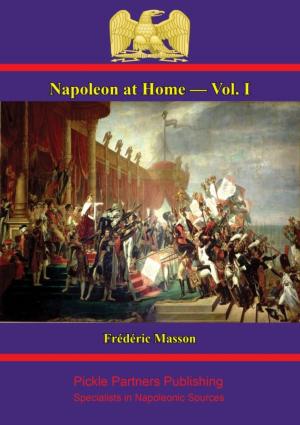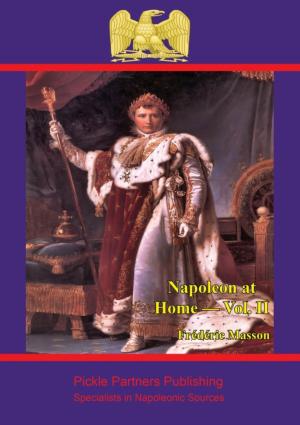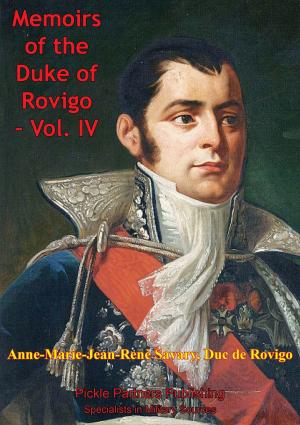The Corsican – A Diary of Napoleon’s Life in His Own Words
Nonfiction, History, Spain & Portugal, France, Military| Author: | Napoleon I Emperor of the French | ISBN: | 9781908692597 |
| Publisher: | Wagram Press | Publication: | March 18, 2011 |
| Imprint: | Wagram Press | Language: | English |
| Author: | Napoleon I Emperor of the French |
| ISBN: | 9781908692597 |
| Publisher: | Wagram Press |
| Publication: | March 18, 2011 |
| Imprint: | Wagram Press |
| Language: | English |
Napoleon, died on the lonely island of St Helena in 1821, his life, his actions and thoughts have been written about, re-written and revised ever since. It is noticeable that Napoleon himself never left much in the way of works written by himself to record what he did or how he went about it, or to justify his methods or outline his plans. The works that emanated from St Helena, such as the Memorial, were written by those that shared his captivity and for their own purposes. That having been said Napoleon lived in a time without modern communication methods, leaving his vast empire to be run via the pen. Much that Napoleon wrote survived as a measure of this the official correspondence that he left behind is voluminous, running to 32 volumes in the initial edition published under the orders of Napoleon III, many other volumes were published thereafter.
From this vast treasure-trove of information about the thoughts, actions and orders that Napoleon left, the American historian Robert Johnson reconstructed his book “The Corsican”. The premise behind the books was to create a diary from Napoleon’s own works and utterances as if it has been written contemporaneously by the Emperor himself. The result is an intriguing book which is faithful to the words of it’s purported owner and includes the shifting themes of his life and his hopes and fears clearly.
Fascinating reading.
Author – Napoleon I – Emperor of the French 1769-1821
Editor – Robert Matteson Johnson 1867-1920
Napoleon, died on the lonely island of St Helena in 1821, his life, his actions and thoughts have been written about, re-written and revised ever since. It is noticeable that Napoleon himself never left much in the way of works written by himself to record what he did or how he went about it, or to justify his methods or outline his plans. The works that emanated from St Helena, such as the Memorial, were written by those that shared his captivity and for their own purposes. That having been said Napoleon lived in a time without modern communication methods, leaving his vast empire to be run via the pen. Much that Napoleon wrote survived as a measure of this the official correspondence that he left behind is voluminous, running to 32 volumes in the initial edition published under the orders of Napoleon III, many other volumes were published thereafter.
From this vast treasure-trove of information about the thoughts, actions and orders that Napoleon left, the American historian Robert Johnson reconstructed his book “The Corsican”. The premise behind the books was to create a diary from Napoleon’s own works and utterances as if it has been written contemporaneously by the Emperor himself. The result is an intriguing book which is faithful to the words of it’s purported owner and includes the shifting themes of his life and his hopes and fears clearly.
Fascinating reading.
Author – Napoleon I – Emperor of the French 1769-1821
Editor – Robert Matteson Johnson 1867-1920







![Cover of the book The Political and Military History of the Campaign of Waterloo [Illustrated Edition] by Napoleon I Emperor of the French](https://www.kuoky.com/images/2012/may/300x300/9781908902535-h8nt_300x.jpg)




![Cover of the book Wellington’s Lieutenants [Illustrated Edition] by Napoleon I Emperor of the French](https://www.kuoky.com/images/2015/november/300x300/9781786255082-Avqc_300x.jpg)


![Cover of the book History Of The Consulate And The Empire Of France Under Napoleon Vol. VI [Illustrated Edition] by Napoleon I Emperor of the French](https://www.kuoky.com/images/2016/march/300x300/9781786259134-gFGX_300x.jpg)